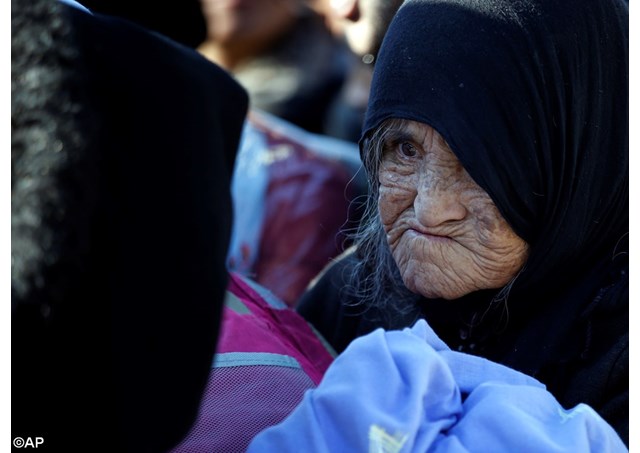
East Europe urging halting migrants after Paris attacks

(Vatican Radio) The deadliest terror attacks in France since World War Two are closely watched in the Balkans and Eastern Europe where several government leaders have expressed concerns that at least one of the suicide bombers may have been mingled with refugees entering Europe. Hungary and Poland are among nations who have already said they will not accept EU quota's aimed at fairly distributing migrants fleeing war and poverty among member states.
Listen to Stefan Bos’ report:
Hungary's anti-migration prime minister Viktor Orbán told Parliament in Budapest that he would not accept the European Union's plan to distribute migrants and refugees among member states.
Following the attacks in Paris that killed at least 129 people, Orbán said no one could say for certain how many terrorists entered Europe by blending in with migrants, but added that "one terrorist is too many."
He defended Hungary's decision to built fences on its borders with Serbia and Croatia to divert the flow of migrants, saying Friday's attacks were an attack on whole Europe. "What happenedon Friday night in Paris could have happened anywhere in Europe. We are not safe either," he stressed.
EUROPEAN LEADERS CRITICIZED
"The time has come for European leaders to wake up and see what is at stake...We as Hungarians have been advocating to close our borders to the flood of people coming from the Middle East and Africa. We have been fiercely criticized by those who claim this approach is not humane," Orbán recalled.
"But we are faced with a question: which approach is more humane? To close the borders in order to stop illegal migration, or to put at risk the lives of innocent European citizens?," he wondered.
Poland's incoming right-wing government seems to agree.
Its new European Affairs Minister Konrad Szymanski said that the attacks ruled out the chances of taking in refugees under the scheme to help ease the burden on EU frontier states Italy and Greece.
MORE SECURITY
And a key figure of Poland's Catholic Church, Cardinal Stanislaw Dziwisz, has urged Europe and the United States to ensure that next summer's World Youth Day with the pope in Krakow "can be held in safety and peace".
Several countries in Eastern Europe have already stepped up security including the Czech Republic where on Tuesday commemorations were to be held in Prague on the 26th anniversary of the Velvet Revolution that ended decades of Communist rule.
However rights activists have urged Eastern Europe not to use valid security concerns to further stir up widespread anti-migrant sentiments in the region.
Hundreds of thousands of people, many from war torn Syria, have crossed the Balkan route seeking a better life in the West.
| All the contents on this site are copyrighted ©. |


